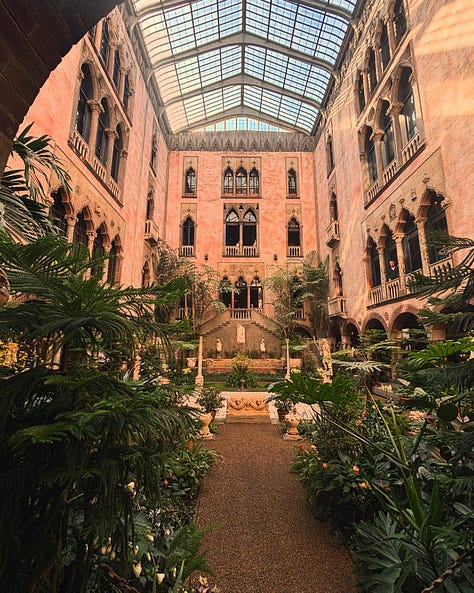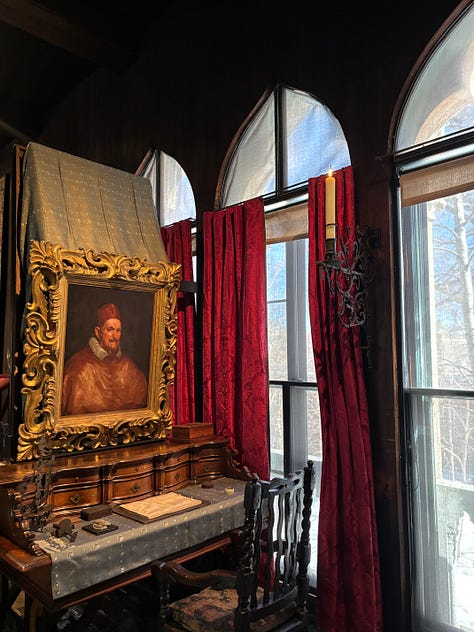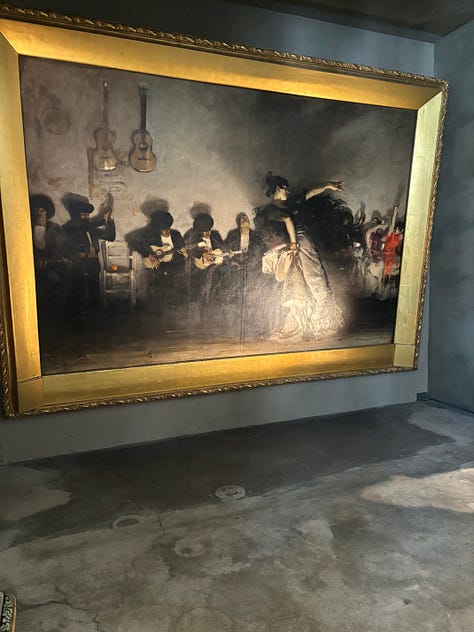Surrendering to maximalist appetites
What Anaïs Nin teaches us about the marvelous
I am an excitable person who only understands life lyrically, musically, in whom feelings are much stronger as reason. I am so thirsty for the marvelous that only the marvelous has power over me. Anything I can not transform into something marvelous, I let go. Reality doesn’t impress me. I only believe in intoxication, in ecstasy, and when ordinary life shackles me, I escape, one way or another. No more walls.
— Anaïs Nin
The night before last, I fell into an Anaïs Nin void, and in doing so came across the same song and dance I’d seen and heard before—commenters (usually men) who have some pathetic hostility toward her work. They say Nin has a “tendency to intellectualize, philosophize, and justify her impulsive decisions.”
She’s also “maximalist” (god forbid!) and “self-aggrandizing.” And her desire to “create glamorous narratives” versus “making simple narratives sound glamorous with her language” reads as “juvenile.”
If you’ve read any of my work, you’ll assume I do not agree with these assessments. You’d be right. First, I am always drawn toward glamour. What is so wrong with beauty and glamour? Everything in life has a glamour, even death. Even grief. Sex, longing, architecture, loneliness. I am not interested in the uncomplicated. And efficient work usually bores me. It is so heavy with its own restraint.
How shall I tell you about dinner with a friend without also kneeling at the altar of gilded detail? How the light bounced, how his body stooped over his plate with a ferociousness that reminded me of sex, how the silent moments felt like a precipice. Too fussy?
As a poet, I love and lean into the maximalist. Poetry is about noticing, after all. It’s about using the language that decorates the human condition. And even if you do wrangle poetry to its barest of bones, isn’t the very impulse to write a poem at all somehow maximalist in its desire to articulate existence? It’s so very unnecessary. So outside the confines of how society operates. Why not pour gold all over it?
All of this is to say that Nin, to me, works in poetics. She embraced a life of appetite (even when the times shunned her for it)—for the erotic, for a deeper understanding of psychology, for human relationship, for self-relationship, for interiority, for a kind of decadence—and that appetite spoke to me when I first read her work.
As a woman and as a poet whose work has been called “confessional” (especially my newest book, SAINT OF), I thank Nin for the permission, for the doorway, for the invitation to both seek and drench myself in glamour, detail, and the ecstasy and agony of this life. I confess I am always in a state of hunger, searching for magnificence. I don’t care if you find it pretentious or fanciful or bloated!
It was Nin’s birthday just a few days ago. I happened to spend it at the Isabella Stewart Gardner Museum in Boston. Gardner was a wealthy society woman and patron of arts whose 1891 inheritance from her father allowed her the means to travel the world and recreate a 15th-century Venetian palazzo, Palazzo Barbaro, in the US. She filled every inch of it with art and other treasures from across the globe. (It is also the site of a major art heist in 1990, leading to a $500 million loss).






At the center of the palace is a sun-drenched cloistered courtyard, filled with lush greens and flowers and pathways and statuettes. It is entirely enclosed by the palace’s many arabesque arches and balconettes. It was so delicious I could hear audible gasps escape the lips of the visitors. The many themed rooms (the early Italian room or the gothic room) and corridors—all stacked above and arranged around that Eden-like courtyard—are adorned with paintings and tapestries, rare books and candelabras. You’ll find so much here, even major works like The Rape of Europa by Titian, Vermeer’s The Concert, and John Singer Sargent’s El Jaleo.
Wandering through, I felt a dizzying buzz—that same lust for life I find in Nin’s work. The same buzz I come to poetry to translate. Garnder’s obsession with curating works of beauty, for telling humanity’s tale room by room and tapestry by sarcophagi, felt apropos for Nin’s birthday. In that space, I sensed that same dauntless appetite—to be surrounded by the marvelous.
In these dark days, when we are contending with forces that aim to suppress and crush us, what better resistance than beauty and wildness? Why not stuff this life down our throats?
ps,
You should read Kim Krizan's Spy in the House of Anaïs Nin.
You should also vist the Isabella Stewart Gardner Museum.


Gorgeous....truth! And now, a book filled with your thoughts and essays and inspirations would be 🔥! (I guess I just love the physical book haha. Nevermind me :)
WHY NOT POUR GOLD ALL OVER IT (!!!) No greater purpose and pleasure than to be forever falling into the Maximalist abyss. Thank you for writing the words I always need to hear 🫀🫀🫀